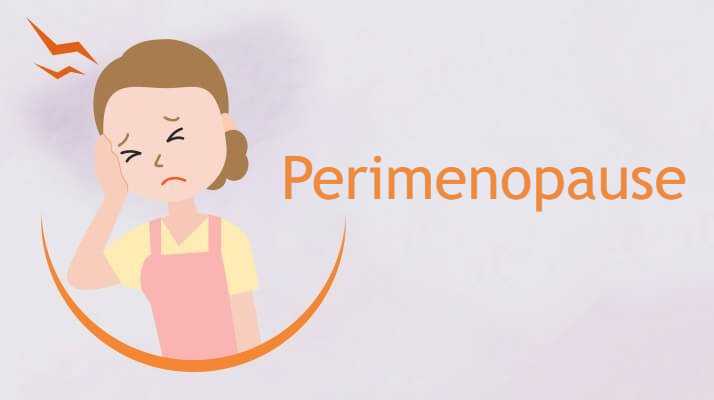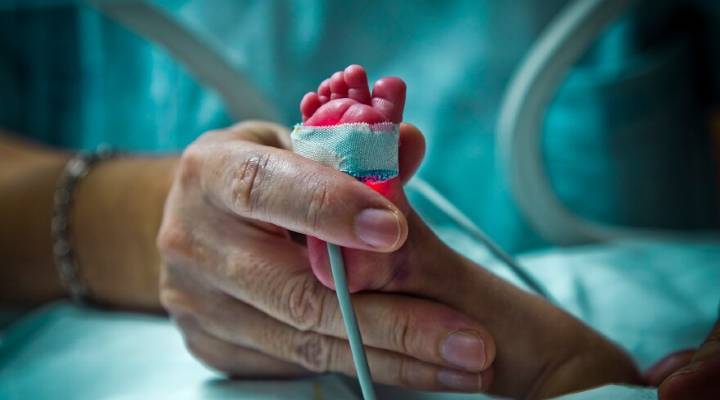Perimenopause: Signs, Symptoms & Treatments

Introduction: What is perimenopause?
Perimenopause is a normal and natural process. Every woman who is born will attain puberty as a young girl & have regular menstrual cycles for many years & then go on to menopause. So menopause is a part of natural ageing process or natural cycle of a woman. When a woman does not get their periods or do not witness menstrual cycle for 12 months, it is defined as menopause. Perimenopause is the transitional phase between normal reproductive life cycle of a woman and the stopping of the periods or menopause. Perimenopause is basically a prolonged transitional window of few years, which is variable from person to person. Most of the women face their perimenopause by their 40s but some can experience it in their late 30s as well. Perimenopause can be earlier seen in women who smoke or have received chemo treatment or have undergone surgical removal of ovaries. 1 among 5 women get their menopause without experiencing many symptoms. The perimanopause is mainly a symptomatic phase where the changes can be very subtle and sometimes create havoc in women’s life. For some women handling the changes is comfortable whereas for some it can hamper their day to day life.
What are the symptoms of perimenopause?
As discussed before perimenopause symptoms vary woman to woman. During the perimenopausal period, the estrogen (female hormone) level fluctuates in the woman body, they experience different type of menopause related symptoms. During perimenopause uneven rise and fall of estrogen level occurs which is basically the root cause of all the symptoms related to menopause. The main symptoms during perimenopause in a woman are irregular menstrual cycle, hot flashes. Overall reduction in estrogen levels can cause vaginal dryness, bladder issues, osteoporosis & changes in cholesterol level.
Irregular menstrual cycle: It can be a longer cycle, or a shorter cycle consisting of a heavy or light bleeding and also skipping of periods as well.
Hot flashes: The most common symptom that bothers the women is the hot flashes. It can be very bad for the woman witnessing perimenopause. The intensity, length, and frequency of hot flashes vary in different women. This particular symptom can create disturbance in sleep including sweating in middle of the night, called as ‘night sweats’ leading to poor quality of sleep. Some women also get anxiety, mood swings and depression.
Vaginal and bladder issue: The reduction in estrogen level in woman going through perimenopause can experience vaginal dryness and loss of lubrication can hamper their sexual life. It may cause frequent genital or urinary tract infection. Though, there is a decreasing fertility in perimenopause phase, sometimes the woman can ovulate and, if contraception is not used they can get pregnant as well.
Osteoporosis: Due to reduction in estrogen levels the bone density starts reducing. It is recommended to take calcium & vitamin D3 supplements & do adequate exercises starting from the perimenopause stage. Further evaluation and treatment may be required in post-menopausal stage.
Cholesterol level change: Reduced levels of estrogen may alter the level of cholesterol & increase chance of heart attacks. Mainly estrogen reduces the bad cholesterol or LDL from the body and maintains the balance of good cholesterol or HDL. So young women do not have heart attacks but during the perimenopause period & postmenopausal period women may face increased risk of cardiac problems.
Treatment:
Some women may experience difficulty in managing the symptoms during the perimenopausal phase. Awareness of that symptoms like hot flashes, anxiety, night sweats, mood swings are due to a natural process called perimenopause itself is very reassuring to most women. Healthy lifestyle including clean eating, regular exercises, yoga, pranayama & active relaxation techniques help. Some women with moderate to severe symptoms may require hormone replacement with estrogen called menopausal hormone treatment for up to 5 years. It is considered to be safe in the age group of 50-59 years. Women can sail through this difficult phase with awareness & some medical help.






